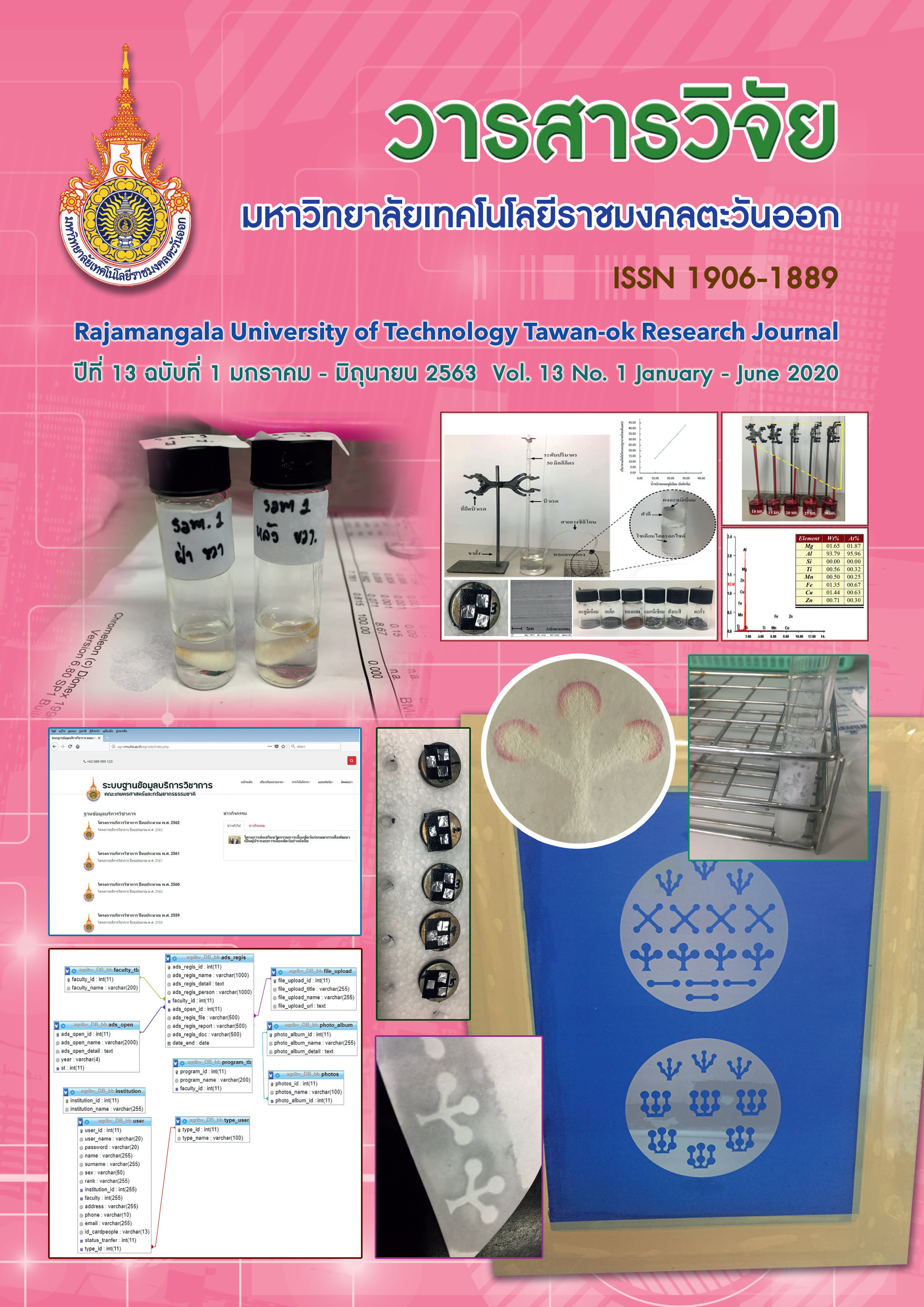SUPPLIER INTEGRATION AND FIRM PERFORMANCE IN THAI AUTOMOTIVE INDUSTRY: COMPARING PREDICTIVE MODELS
Main Article Content
Abstract
Supplier integration is an important strategic supplier management in the automotive industry to enhance supplier capabilities and achieve competitive advantage. Automotive firms integrate suppliers in operational processes which require compatible technologies, coordination and quality management methods to enhance supplier capabilities. This research studies the influences of the integration of suppliers which affect the performances of automotive firms by survey. Using Structural Equation Modeling and the PLS technique. The study compares two models with supplier development as a latent variable, exogenous or mediator variable. In the model with supplier development as mediator, the analysis shows that supplier integration has indirect positive effects on firm performances stronger than the other with R2adj. is slightly lower (.527<.532). Meanwhile supplier development has direct influences on performances of both automotive firms and their suppliers.
Article Details
References
Akamp, M. and M. Muller. 2013. Supplier management in developing countries. Journal of Cleaner Production 56(1): 54-62.
Arroyo-Lopez, P., E. Holmen and L. de Boer. 2012. How do supplier development programs affect suppliers? Insights for suppliers, buyers and governments from an empirical study in Mexico. Business Process Management Journal 18(4): 680-707.
Cabigiosu, A., F. Zirpoli and A. Camuffo. 2013. Modularity, interfaces definition and the integrationof external sources of innovation in the automotive industry. Research Policy 42(3):662-675.
Chung, S. and M. G. Kim. 2003. Performance effects of partnership between manufacturers and suppliers for new product development: the supplier’s standpoint. Research Policy 32(4): 587-603.
Corsten, D. and J. Felde. 2005. Exploring the performance effects of key-supplier collaboration: An empirical investigation into Swiss buyer-supplier relationships. International Journal of Physical Distribution and Logistics Management 35(6): 445-460.
Dunn, S. C. and R. R. Young. 2004. Supplier assistance within supplier development initiatives. Journal of Supply Chain Management 40(2): 19-29.
Fink, R. G., L. F. Edelman and K. J. Hatten. 2007. Supplier performance improvements in relational exchanges. Journal of Business and Industrial Marketing 22(1): 29-40.
Ghijsen, P. W., J. Semeijn and S. Ernstson. 2010. Supplier Satisfaction and Commitment; The Role of Influence Strategies and Supplier Development. Journal of Purchasing and Supply Management 16(2): 17-26.
Hair, J. F., G. T. M. Hult, C. M. Ringle and M. Sarstedt. 2017. A primer on partial least squares structural equation modeling (PLS-SEM) 2nd edition. SAGE Publications Inc., London.
Hair, J. F., C. M. Ringle and M. Sarstedt. 2011. PLS-SEM: indeed a silver bullet. Journal of Marketing Theory and Practice 19(2): 139-151.
Hanfield, R. B., G. L. Ragatz, K. J. Petersen, and R. M. Monczka. 1999. Involving suppliers in New Product Development. California Management Review 42(1): 59-82.
He, Y., K. K. Lai, H. Sun, and Y. Chen. 2014. The impact of supplier integration on customer integration and new product performance: the mediating role of manufacturing flexibility under trust theory. International Journal of Production Economics 147(PB):260-270.
Humphreys, P. K., W. L. Li and L. Y. Chan. 2004. The impact of supplier development on buyersupplier performance. Omega 32(1): 131-143.
Krause, D. R. and T. V. Scannell. 2002. Supplier development practices: Product- and service-based industry comparison. Journal of Supply Chain Management 38(1): 13-21.
Krause, D. R., T. V. Scannell and R. J. Calantone. 2000. A structural analysis of the effectiveness of buying firms’ strategies to improve supplier performance. Decision Sciences 31(1): 33-55.
Lockstrom, M. and L. Lei. 2013. Antecedents to supplier integration in China: A partial least squares analysis. International Journal of Production Economics 141(1): 295-306.
Lu, R. X. A., P. K. C. Lee and T. C. E. Cheng. 2012. Socially responsible supplier development: Construct development and measurement validation. International Journal of Production Economics 140(1): 160-167.
Modi, S. B. and V. A. Mabert. 2007. Supplier development: Improving supplier performance through knowledge transfer. Journal of Operations Management 25(1): 42-64.
Nagati, H. and C. Rebolledo. 2013. Supplier development efforts: the suppliers’ point of view. Industrial Marketing Management 42(2): 180-188.
Prahinski, C. and W. C. Benton. 2004. Supplier evaluation: communication strategies to improve supplier performance. Journal of Operations Management 22(1): 39-62.
Ragatz, G., R. B. Handfield and K. J. Petersen. 2002. Benefits associated with supplier integration into new product development under conditions of technology uncertainty. Journal of Business Research 55(1): 389-400.
Schonberger, R. J. 2007. Japanese production management: an evolution - with mixed success. Journal of Operation Management 25(1): 403-419.
Sun, H. and W. Ni. 2011. The impact of upstream supply and downstream demand integration on quality management and quality performance. International Journal of Quality and Reliability Management 29(8): 872-890.
Tan, K. C., V. R. Kannan and R. B. Handfield. 1998. Supply chain management: Supplier performance and firm performance. International Journal of Purchasing and Materials Management 34(3): 2-9.
Tang, D. and X. Quian. 2008. Product lifecycle management for automotive development focusing on supplier integration. Computers in Industry 59(1): 288-295.
Wagner, S. M. 2003. Intensity and managerial scope of supplier integration. Journal of Supply Chain Management 39(4): 4-15.


